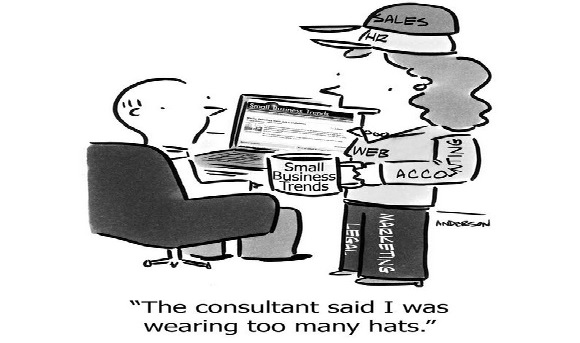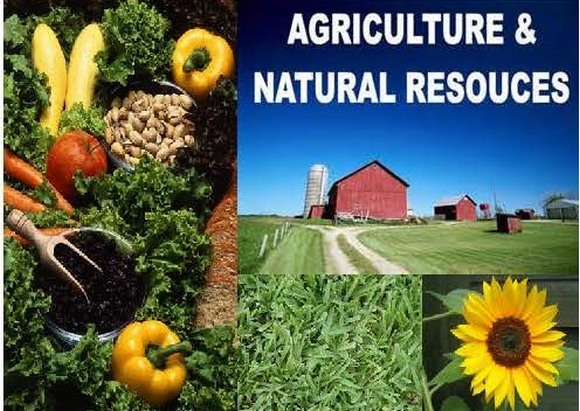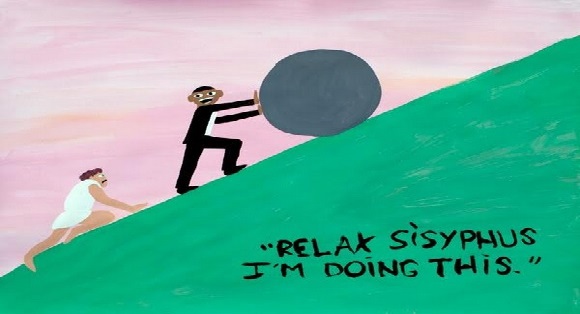-
About
- Our Work
- Get Involved
- Stay Updated
Do you wear multiple hats? Choose the youth!
 On Thursday 23rd of March, 2017 I went to the presentation of the Nature Outlook Report where I was one of the panelists of the debate session. The objective of my presentation was to give my inputs on the question: How can nature be relevant for a sustainable future of agriculture? A big question, isn’t it? I am a Scientific Project Officer at the Agropolis Foundation and I’m the YPARD’s France representative on a voluntary basis. This demand came to me through the power of YPARD’s network, but due to the challenge to answer to such a question, I hesitated on what “hat” I was going to wear… I choose the comfortable one: the one that would let me speak about the job I do and the issues I handle on a day to day basis. Today I realize that it would have been better to choose to be comfortable with the uncomfortable one! Our generation was born knowing that natural resources are not unlimited. We were born and climate change was a reality. Being nature-inclusive is not an uncommon tendency for the youth. On the contrary, youth is a driver of change towards a sustainable model for agriculture.
On Thursday 23rd of March, 2017 I went to the presentation of the Nature Outlook Report where I was one of the panelists of the debate session. The objective of my presentation was to give my inputs on the question: How can nature be relevant for a sustainable future of agriculture? A big question, isn’t it? I am a Scientific Project Officer at the Agropolis Foundation and I’m the YPARD’s France representative on a voluntary basis. This demand came to me through the power of YPARD’s network, but due to the challenge to answer to such a question, I hesitated on what “hat” I was going to wear… I choose the comfortable one: the one that would let me speak about the job I do and the issues I handle on a day to day basis. Today I realize that it would have been better to choose to be comfortable with the uncomfortable one! Our generation was born knowing that natural resources are not unlimited. We were born and climate change was a reality. Being nature-inclusive is not an uncommon tendency for the youth. On the contrary, youth is a driver of change towards a sustainable model for agriculture.I didn’t feel legitimate to speak about young farmers that are willing to begging their agricultural projects because I felt that I was not close enough to them, which is not false, but still! I know young farmers that are working on nature-inclusive projects that will definitely lead towards a sustainable development. And I think that those experiences could be scaled up to show how nature can be relevant for sustainable agricultural development. And even if I don’t know all the ins and outs of those projects, they deserve to be shown.
But anyway, a lesson learnt: always attempt to be comfortable with being uncomfortable. And for preparing to participate in such an event, think deeper about the context of the conference, take into account other’s presentations and identify the key issues that your positions can bring to the debate, then… Choose your hat!
Have a nice reading of my pitch during the presentation of the Nature Outlook report.
Nature outlook: Increasing nature’s relevance for a sustainable future of the agricultural sector
 My name is Myriam Perez, I was raised in Spain and have been working in France for the past 7 years. I entered the education system when Europe was a reality for my country. So, I hope that my analysis today can give some insights of the young professional’s perspective on nature’s relevance for sustainable agricultural systems.
My name is Myriam Perez, I was raised in Spain and have been working in France for the past 7 years. I entered the education system when Europe was a reality for my country. So, I hope that my analysis today can give some insights of the young professional’s perspective on nature’s relevance for sustainable agricultural systems.Let me introduce Agropolis Fondation, my present employer. Agropolis Foundation is a body for Scientific Co-operation in the field of Agriculture and Sustainable Development. Founded in 2007 by the French government as the support of an advanced thematic research network, this network today comprises 41 research units. We work in consultation with our 4 founding members and 8 partner institutions, as a result, we are both a scientific collaborative tool and a financial tool.
In order to support research and higher education in the field of agriculture and sustainable development, the Fondation provides funding for scientific projects of the highest standards. The scientific value of these projects is assessed by our Science Council. These scientific projects are selected through calls for proposals or commissioned procedures.
I would like to present you two examples of these projects that have contributed to increase the relevance of nature for more sustainable agricultural systems.
The first one is called SCENARICE. This project had two main objectives: (1) organize and coordinate, in a flexible and consistent way, methods and tools from different scientific disciplines, and research teams, from France and Italy, in order to (2) evaluate scenarios of possible evolutions for rice-based cropping systems in terms of sustainability performances, that is to say, socio-economic and environmental performances.
Participatory methods were used to develop narrative scenarios related to the future of local agricultures. In each case study, workshops with local stakeholders aimed at: (1) identifying and ranking the drivers of change for future agricultural systems (at the local and global scales); (2) consistently combining the main drivers into four consistent and creative scenarios; (3) designing the possible adaptation strategies of local farmers to these possible changes of context (taking into account farm diversity).
The stakeholders’ consultations let to highlight similar main drivers of change, affecting the rice systems in the future. The two main drivers were climate change and the socio-economic conditions as the evolution of the CAP and of the national/European regulations.
The SCENARICE project gave evidence about the need of unavoidable trade-offs, as no scenario improved all indicators in the case studies. These results were finally discussed collectively with local stakeholders. Local stakeholders consider the use of this model and these results to “anticipate future changes of context in order to better adapt”.
SCENARICE can be considered as an effective perspective to strengthen the capacity of local stakeholders in anticipating future changes in social, economic, legislative and environmental contexts.
The second example is the project called “Outdoor Laboratories for Agrobiodiversity”. Its objective was to set up and test an action-research approach for agrobiodiversity that would be designed and discussed jointly with research teams, practitioners and rural stakeholders in five Mediterranean and tropical regions.
The outdoor laboratories aim to encourage practitioners and rural stakeholders to work together on the conditions required to renew and develop agrobiodiversity uses in the field.
Again, participatory methods and workshops were held on the field to facilitate interactions among these different actors.
The best result of these new laboratories remains that the approach works. Farmers and researchers exchanges, on questions raised by farmers, take place, and knowledge transfers are made towards agroecological transition.
As it is said in the Nature Outlook report “people are a rich reservoir of situated knowledge, capacities and practices, and as such they could be much more engaged in and better positions to undertake nature-related efforts and programmes.”
Today’s reflections
Beyond scientific conclusions and perspectives of both projects, this is the main point that I think can enrich today’s reflections
- Projects that have successfully considered nature relevance for sustainability have required the engagement and participation of all stakeholders at the same level.
- In other words: defining the conditions to engage researchers in action and reflection with farmers must be an overriding objective on our agendas. But for the sustainability of such an approach, involvement of institutions and state bodies is a must. There is still work to be done to scale up these success stories. The door is open to debate.
 Ceaseless attempts to make agricultural systems sustainable and nature-inclusive
Ceaseless attempts to make agricultural systems sustainable and nature-inclusiveI would like to finish with a very inspiring testimony recently read. A young professional wrote that she felt like Sisyphus, the figure of the Greek mythology. [I confess I had to check on Wikipedia who Sisyphus was…] Sisyphus was one of the souls in the underworld who was punished by the gods because of his arrogance. His punishment was to eternally push a rock or boulder uphill, then watch helplessly how it tumbles back down to the bottom. He has to do that every day, forever.
This young professional felt arrogant for thinking that she could solve “society’s problems” with her project. When she thought she had achieved the objective of her project, there was no “tadaaam” moment. She felt that the boulder was going down the hill again. But at that moment someone gave her a very good advice “be patient and perseverant”.
Those words gave this young professional the strength to assume frustration and the wisdom to understand that every effort done is a step forward, even if we feel that our boulder is rolling down the hill again.
From my present position at Agropolis Fondation, now I understand and believe that science moves forward but it takes a bit of struggling.
I guess and imagine that when we are all working on our day to day activities, we might sometimes feel like Sisyphus again, won’t we? From my side, I’ll take Albert Camus’ vision of this figure (that I have read in Wikipedia too…) Albert Camus concludes in his essay, "The struggle itself is enough to fill a man's, heart. One must imagine Sisyphus happy." So tomorrow I’ll be happy for the efforts made so far to make nature relevant for agriculture and sustainable development. And I’ll renew my efforts every day with this objective, making agricultural systems sustainable and nature-inclusive.
Picture credit: Picture 1 - Small biz trends, Picture 2 - UGA extension 3- Jaysonmusson
About the author
Related Posts
Comments
No comments made yet. Be the first to submit a commentBy accepting you will be accessing a service provided by a third-party external to https://archive.ypard.net/
Get in touch
Email: [email protected]
YPARD Global Coordination UnitHosted by AGRIDEA and the Czech University of Life Sciences Prague
Lausanne, Switzerland and Prague, Czech Republic - Our Work

